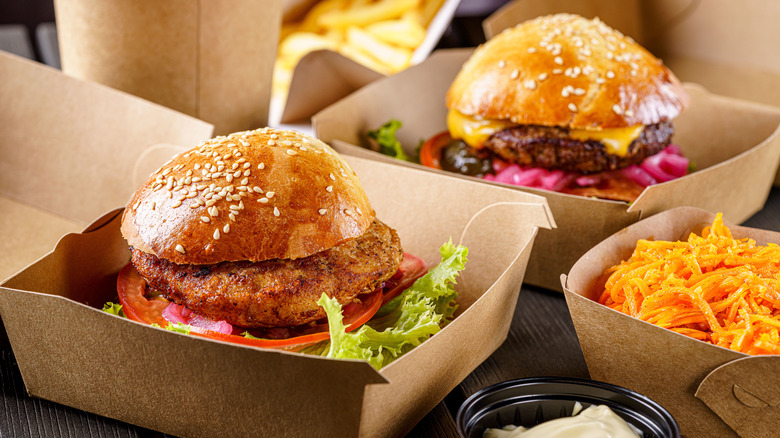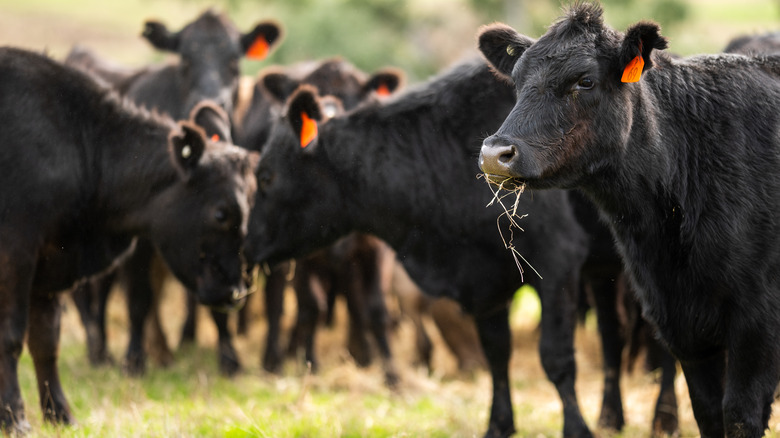Why Fast Food Industry Antibiotics May Be A Bigger Problem Than You Thought
Recent global health studies have some troubling news: Antibiotic resistance is one of biggest growing health crises in the world. While it has been an increasing problem for a while now, the COVID-19 pandemic has only accelerated the issue, as the high usage of antibiotics to treat the SARS-CoV-2 virus has led to an increased prevalence of antibiotic resistance, as Harvard reported.
However, it turns out one of the biggest contributors to antibiotic resistance is not medical drugs, but antibiotics that are used on animals being raised for food. And the fast food industry's beef supply chain is one of the worst offenders. According to the Natural Resources Defense Council, which publishes an annual Chain Reaction report surveying the antibiotic use in animals raised for consumption and used by restaurants, almost two-thirds of the antibiotics sold in the United States are used on food animals, which leads to worsening antibiotic overuse and increases the risk that harmful microbes will change and develop resistance to antibiotics, making them less effective and potentially leading to the creation of drug-resistant superbugs.
"When top restaurant chains voluntarily commit to ending the routine use of antibiotics in their supply networks, they can ignite broader change in practices across the meat industry," the NRDF explained in its Chain Reaction report. "Ending routine antibiotics use can help slow the spread of antibiotic-resistant bacteria and keep these critical medicines working to treat infections in people and animals."
Fast food chains contribute to antibiotic resistance by using the drugs in their meat supply
Many global fast food chains seem troublingly slow to change their ways despite the growing threat of antibiotic resistance. "We created the scorecard to track the practices of the largest chain restaurants in the U.S. on sourcing meat raised without antibiotics," said Meg Bohne, associate director of campaigns at Consumer Reports. "In the five years we've been issuing the report, we've seen more and more chains agree to serve only chicken raised without medically-important antibiotics. But progress on beef has been disappointingly slow."
Many of the largest fast food chains, including Burger King, Pizza Hut, and Starbucks, all scored a failing rating, continuing to use antibiotics in their meat supply. While McDonald's, one of the largest beef buyers in the world, fared a little better with a C rating, they have failed to improve their score in recent years, despite announcing a commitment to reducing their antibiotic use in 2018.
However, there were a few encouraging signs. Wendy's showed a slight improvement, moving up from a D-plus to a C rating since 2019, and voluntarily committing to ending the use of antibiotics in its beef supply by 2030. Per the report, both Chipotle and Panera do not serve meat raised with antibiotics, scoring an A and A-minus respectively. Hopefully, their commitment to reducing the use of antibiotics in their supply will help inspire the rest of the fast food industry to do the same.

